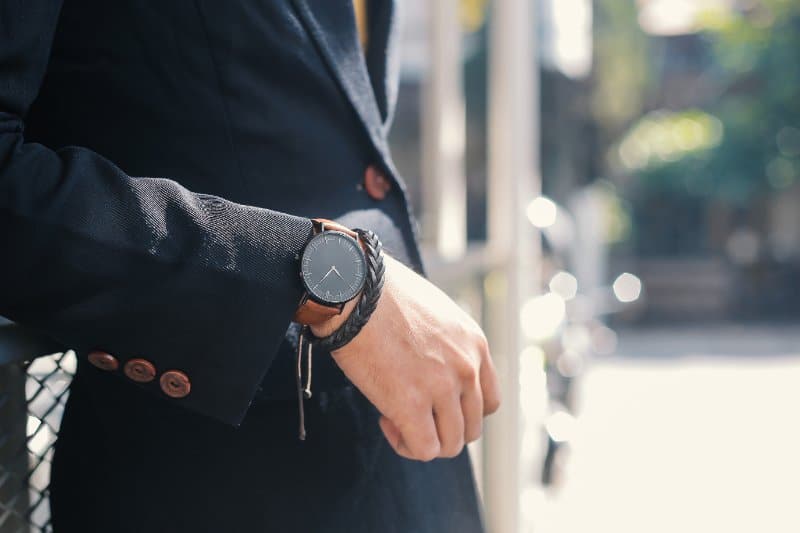Going back to my Catholic school days, I often heard the phrase: “You never get a second chance to make a first impression.”
I remembered this through the years whether it was going on a job interview, meeting someone for the first time, or going to an event where I might interact with people I had never met before.
How you dress, speak, and carry yourself will often lead to an impression or perception by which many will make an immediate assumption as to what kind of person they perceive you to be.
First Impressions Matter
Often, that first impression can, in many cases, make or break a potential relationship. Many people often place judgment on you just from that first impression. We all know that it is not fair, but it is human nature. For some, if they see you as rude, arrogant, or uninterested, they may likely write you off and move on. On the other hand, if you take the time to make a good impression you will be more likely to form a well-accepted bond with the other person or group into which you have just entered.
Impressions often play a significant factor in all facets of your life. They help you make friends more easily and can place you in a positive or negative light when appearing to others.
Throughout history, research has shown that most people form an opinion of you within seconds of meeting. From your first day of school to dating relationships, employment relationships, interviews, and numerous other interactions, first impressions matter.
You may wonder what this has to do with the sport of showing dogs? I think it is obvious. First, hopefully, you have trained, groomed, and taken the time to prepare your dog to go into the ring. When you walk into the ring and set your dog up, you unconsciously create a first impression for the judge. What does that impression convey to the judge? It conveys either a well-groomed team of handler and dog, with the handler looking professional and conveying a confident message of pride in the exhibit, or one of a rag-tag team that does not respect the sport enough to dress, train, and strive for success.
Judges, you also send a message to the exhibitors. There are some key things that you can do to make a great first impression. First, be sure to dress for the part. Looking professional shows that you have a great deal of respect for not only the sport but also for your position of authority. Smile, make eye contact, and try to avoid crossing your arms or fidgeting. Speak your instructions clearly to each exhibitor.
Show kindness to all, especially to those who appear to be new and lacking experience. Just as a first impression of each of us as individuals is conveyed to others, how a newcomer is treated also affects their future in the sport and could be a determining factor in their desire to continue or simply walk away.
Often, that first impression can, in many cases, make or break a potential relationship. Many people often place judgment on you just from that first impression.
Dressing for Success
Our appearance is another way in which we are all judged by our peers as well as by others. We often don’t understand how much looks matter. I’m not talking about beauty or romantic relationships, rather, it is more about our human interactions. As humans, our unconscious minds sort and collect objective data. Without even understanding why our minds look at factors such as a person’s body language, voice, clothing, appearance, and other social categories, people will scrutinize even the smallest facial expressions or movements we make.
So why do we need to “Dress for Success?” A study by Lefkowitz, Blake, and Moulton in 1955 proved that business suits portray a form of authority. In an experiment, they had someone in a city cross the street against the traffic. When the individual crossed wearing a three-piece suit, three and a half times as many people followed him as when he was wearing a work-shirt and trousers. Now, I agree that a lot has changed since 1955, but people still tend to show respect for the professional look vs. the casual one.
Just like the old saying, “Don’t judge a book by its cover,” which is a true statement, there is no doubt advertising has shown over the years that creating aesthetic packaging draws people to the product. Thus, the visual picture we create for others makes a difference. People still make assumptions and categorize individuals on what they see, especially in the judgment world in which we now exist.
People who take the time, effort, and pride in how they dress project an image of self-respect and self-worth, which sends a message that you think positively and have clear self-respect. How we dress can boost our self-confidence and draw the right kind of positive attention.
All of us look for ways to improve ourselves and keep up being productive. Looking our best can help to give us that feeling as well as a competitive edge.
Dressing up can be fun! While I would hope that both judges and exhibitors agree that when dressing appropriately we show respect for our sport, there are times when we need to be casual and have fun. I have had the pleasure to judge several of those shows that have a theme, like Woofstock with its ‘70s theme, Barkaritaville with island attire and a Jimmy Buffett theme, and those with a Western or even a Back to the ‘50s theme. These are great, fun opportunities that the clubs advertise well in advance so that we can plan to dress in attire to achieve the party atmosphere they are encouraging.
There are also outdoor shows where the weather has an impact on our health and well-being. I would encourage those clubs that want exhibitors to be more comfortable in the heat to clearly state in the premium lists and in their judging programs that “business casual” is the fare for the day. The words here are “business casual,” not shorts, T-shirts, or anything that takes away from showing respect for the sport.
Professionalism Matters Too
Last, but certainly not least, is how we act truly makes an impression. Building a personal legacy and leaving a lasting impression on others can be achieved by focusing on professionalism. Being a professional is about having strong skills and achieving competence in your chosen field.
Again, whether a judge or an exhibitor, be sure to meet or exceed the accepted norm for a professional appearance in the ring. Judges, be aware that exhibitors may take a cue from the way you dress. I know this can be especially difficult for some. Ladies, look in the mirror when choosing outfits. Send a clear message that you are truly a professional. Men, wear shirts, ties, and sportscoats. Those coats can be removed in the ring if you get warm, but they send the message that you care. Wear clothes that fit you properly. No matter what your size, there are plenty of age-appropriate and professional options out there.
To the judges, your demeanor should reflect confidence but not by acting cocky in any way. The exhibitors are your customers, so be polite and well-spoken. Just because you are considered an expert and you are in charge, you don’t have the right to treat others like they are idiots or worthless. At the same time, being warm and friendly does not give you the right to call them “sweetie” or “honey” or any other term that could be misconstrued.
A true professional is reliable. Exhibitors, get to the ring on time. Have help with you if you think you will need it. Judges, be on time. Run your ring effectively and efficiently, communicate your wishes clearly, and try to avoid any situations that may disrupt your judging. Find a way to allow time for photos. Although you may feel inconvenienced, the exhibitor truly appreciates the win and would like a photo to cherish the moment.
Part of being professional is being competent, ethical, and accountable. For exhibitors, have you done your homework? Do you understand your breed? Have you read and reread your Breed Standard? Can you be objective about not only your exhibit but also the others?
Sportsmanship is about ethical and accountable behavior. Be the first to congratulate the winner and then start preparing for your next show. Dwelling on a loss, or demeaning the judge or the competition, won’t change the results. Learn, work, and improve.
Judges, have you prepared? Did you review your Standards? Disqualifications? Remember, we have no friends in the ring. Just judge the dogs and be fair to everyone. You will never make everybody happy, so be competent and ethical. Just follow your knowledge and what you see—and make your choices.
Conclusion
I think we can all agree that in life as well as in our sport, first impressions, how we dress, and professionalism can all impact the difference between success and failure. So, as you prepare for your next show, either as a judge or an exhibitor, it is important to remember to incorporate all of these things to make your participation in the sport a success.









